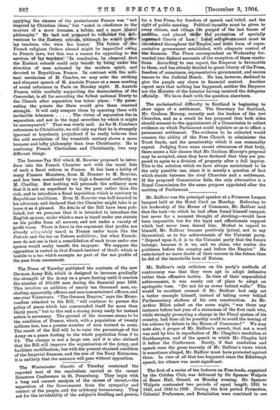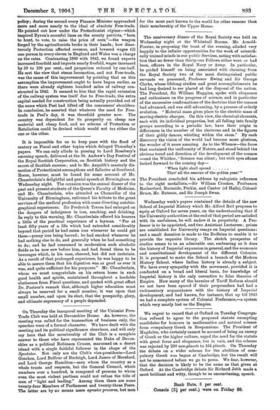policy; during the second every Finance Minister approached more and
more nearly to the ideal of absolute Free-trade. He pointed out how under the Protectionist regime—which inspired Byron's scornful lines on the county patriots, "born to hunt, to vote, to raise the price of corn "—the weapon forged by the agriculturists broke in their hands; how disas- trously Protection affected revenue, and lowered wages till one person in every eleven in England and Wales was a charge on the rates. Contrasting 1869 with 1842, we found exports increased fourfold and imports nearly fivefold, wages increased by 50 to 100 per cent., and pauperism reduced by one-half. He met the view that steam locomotion, and not Free-trade, was the cause of this improvement by pointing that on this assumption the improvement ought to have begun earlier, as there were already eighteen hundred miles of railway con- structed in 1842. It seemed to him that the rapid extension of the railway system was itself due to Free-trade, the extra capital needed for construction being actually provided out of the sums which Peel had lifted off the consumers' shoulders. In conclusion, he asserted that whatever the need for Free- trade in Peel's day, it was threefold greater now. The country was dependent for its prosperity on cheap raw material and cheap food, and no scheme of Protection or Retaliation could be devised which would not tax either the one or the other.







































































 Previous page
Previous page